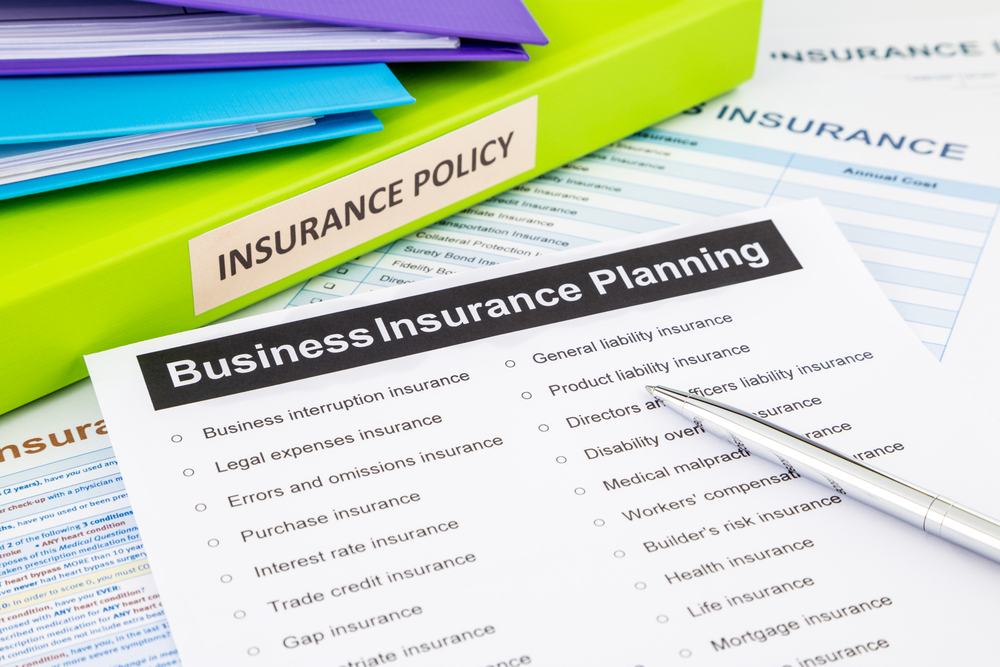
Insurance is designed to protect small businesses from expenses associated with lawsuits, but also from costs surrounding injured employees, stolen equipment, or damaged property. No matter what type of business you run, consider purchasing some or all of the following types of insurance for your company and its assets:
1. General Liability Insurance.
If your company is at risk of being sued for accidents, injuries, or claims of negligence, libel, or slander (which means just about any business, really), purchasing general liability insurance makes a lot of sense. It’s standard coverage that is smart to have.
2. Business Interruption Insurance.
If something happens to your business that is out of your control and causes it to be closed for an extended period of time, business interruption insurance (also called Business Income Insurance) can replace that lost income. Other types of insurance will cover damage to your building, machinery, products, or people, but business interruption insurance helps ensure you’ll have money to pay your employees and buy raw materials.
3. Property Insurance.
When operating a business in a space you don’t own, purchasing commercial property insurance will help protect against losses that occur if the building or its contents are damaged in some way. If your small business is home-based, you can sometimes add coverage to your existing home policy to protect against damage to the property, or claims against your business due to personal injury.
4. Renter’s Insurance.
Just as it’s a smart idea for home renters to buy insurance to protect their personal belongings, it’s a smart idea for business owners to buy insurance to protect any property located in rental space. If any of your equipment or materials are stolen or damaged while on-site, renter’s insurance will replace it – your landlord won’t.
5. Auto Insurance.
Commercial auto insurance protects the cars and trucks your company owns and operates. However, since most smaller businesses don’t need fleets of vehicles, consider looking into non-owned automotive liability coverage, which protects your business if an employee drives his or her own car on company business and gets into an accident. This insurance will protect you if your employee lacks enough insurance to cover the damage.
6. Worker’s Compensation.
Businesses with more than five employees are required by law to carry worker’s comp insurance, but if you’re under that threshold, the decision whether to buy it is yours. Worker’s comp insurance provides medical coverage and income replacement to employees who are injured while working for you. In exchange for providing it, you can’t be sued by employees for their injuries.
7. Product Liability Insurance.
Companies that manufacture, market, distribute, or sell products are responsible for their safety. If a product is found to be defective, or causes harm, customers can sue you. This insurance protects you against financial loss if such claims are made.
8. Professional Liability Insurance.
Just as product liability insurance protects product-based businesses, professional liability insurance protects service providers. Clients can sue you if your services are found to cause them harm, even by way of advice. Also called “errors and omissions” insurance, this type of policy covers the cost to defend you against lawsuits that may arise if a client alleges that your services resulted in harm.
While every business is different, all can benefit from the protection that insurance provides. The cost of insurance relative to the potential cost of a lawsuit, or the value of damaged property, is pretty minimal. And knowing that you won’t have to close your doors if you are ever sued is worth the money.